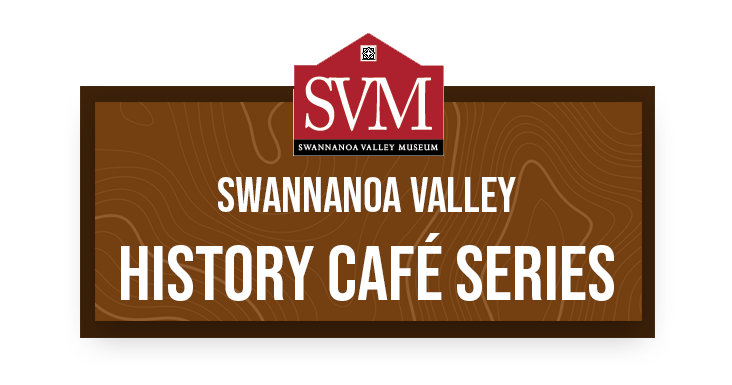
Who were the remarkable people and communities who shaped the Swannanoa Valley? Who built the railroads, and how did tourism develop? When catastrophe has struck, how have communities banded together to continue on?
The Swannanoa Valley History Café Series explores these questions with monthly evening lectures, taking place March thru November at the Education Room of the Black Mountain Public Library (105 N. Dougherty Street). These hour-long meet-ups engage the many stories that have shaped the Swannanoa Valley as a place — from the history of early Cherokee towns, to the development of drovers roads and railways, to the histories of local institutions like the Black Mountain Public Library. Each presentation ends with a Q&A discussion bringing our shared history into context with contemporary issues.
Learn more about our cafés and register below.
When & Where: Cafés take place once a month, March thru November on Monday evenings from 6:00pm-7:15pm at the Education Room of the Black Mountain Public Library (105 N. Dougherty St.).
Cost: Swannanoa Valley History Cafés are FREE for museum members with promo code. Cafés cost $5.00 for the general public. Some fees apply.
Covid Policy: Attendees are highly encouraged to wear masks over the nose and mouth while in the Education Room. If circumstances do not allow for meeting in person, the event will be moved to an online format and registrants will receive a zoom link.
2022 Series: Details and Registration
This series has concluded for 2022. 2023 presentation dates will be posted shortly.
Past Events 2022
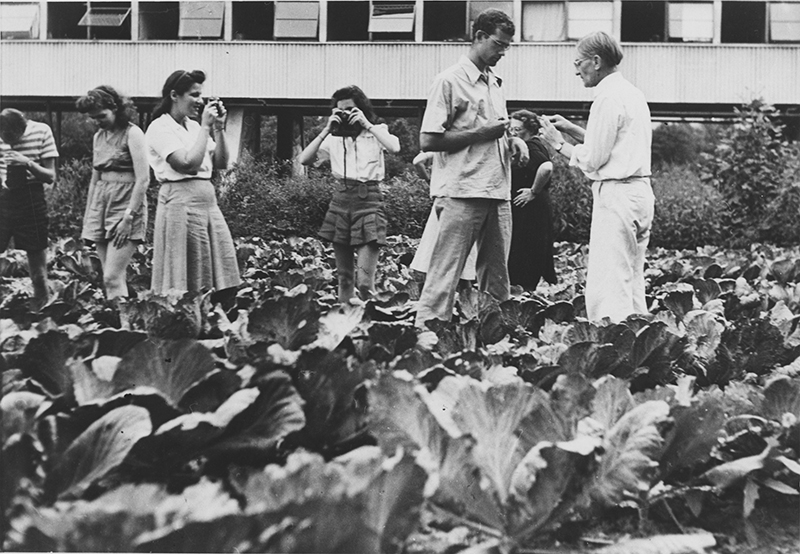
March 21st: Exploring Black Mountain College’s History through Archival Photographs, with Heather South
Though in existence for only a few decades, Black Mountain College (1933-1957) had a deep impact on the arts. Many students who spent time at the school became highly influential artists in the latter half of the 20th century, and the school’s educational model has helped to shape the liberal arts up to the present day. In this presentation, Heather South will share photographs from the Western Regional Archives that highlight the college’s history, and discuss the ongoing fascination with the college today. REGISTER HERE
About Heather South (click here)
Heather South is the lead archivist for the Western Regional Archives, a branch of the State Archives of North Carolina, located in Asheville, She earned a B.A. and M.A. in history from Winthrop University and is a member of the Academy of Certified Archivists and a National Heritage Responder.
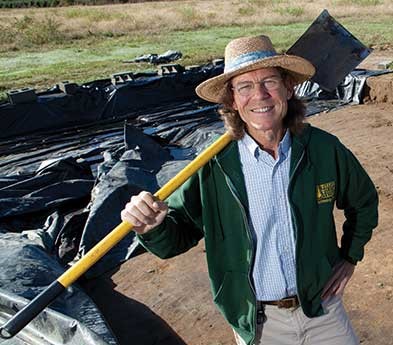
April 11th: A Fifteenth-Century Swannanoa Valley Cherokee Village: Mississippian Culture at the Warren Wilson Archaeology Site
In his talk about the multiple Pisgah phase (ancestral Cherokee) settlements at the Warren Wilson archaeology site, Dr. Moore will explain what is meant by Mississippian culture and how it relates to Cherokee history. He will describe the origins of the excavations at Warren Wilson in the 1960s and talk about what archaeologists have learned about the local expression of MississIppian culture. He will also briefly describe how the Warren Wilson site is related to other western North Carolina Mississippian and Cherokee sites. REGISTER HERE
About Dr. David Moore (click here)
David Moore teaches archaeology at Warren Wilson College. He received a BA from the University of California at Berkeley and his MA and PhD in anthropology from the University of North Carolina at Chapel Hill. He has conducted archaeology in western North Carolina since 1978 and worked for the NC Office of State Archaeology for 18 years prior to coming to Warren Wilson in 1999. He also serves as the principal archaeologist for the Exploring Joara Foundation in Morganton. Since 2000 he has directed major excavations at the Berry site, the location of the Native American town of Joara and the sixteenth-century Spanish Fort San Juan, the earliest European settlement in the interior of the United States, 1567-1568. He is the author of Catawba Valley Mississippian: Ceramics, Chronology, and Catawba Indians (University of Alabama Press, 2002), and Fort San Juan and the Limits of Empire (co-authored with Robin A. Beck and Christopher B. Rodning, University of Florida Press, 2016). In 2019, Moore and his colleagues received a Discovery Award at the 4th Shanghai Archaeology Forum in Shanghai, China, for their discovery and investigation of Fort San Juan.
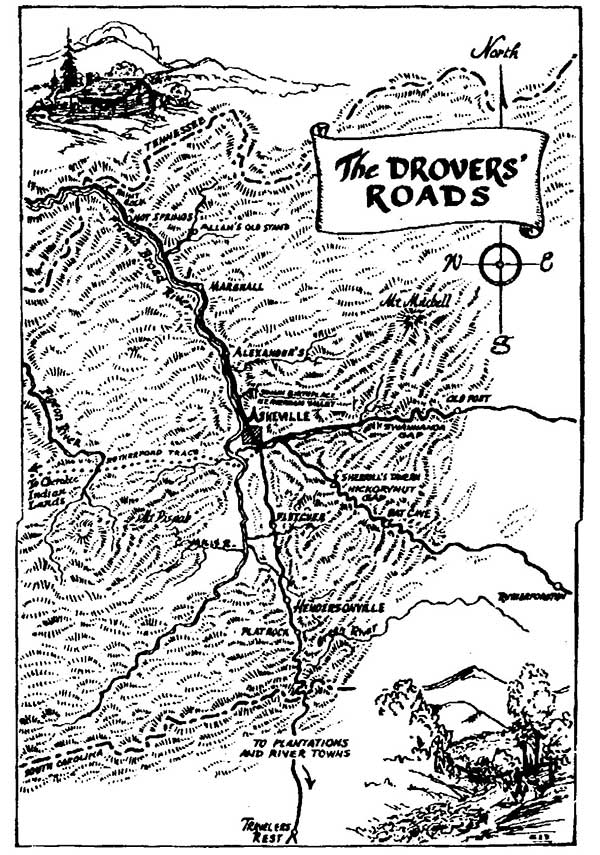
May 23rd: Early Drovers’ Roads and Stagecoach Roads in Western North Carolina
Peter Koch will present a program from the early days of drovers stands, hog and turkey drives, and stagecoaches. These means of travel and places of accommodation seem quaint when viewed through a modern lens dominated by Interstate 40 and the multi-story hotels in Buncombe and the surrounding counties. Yet western North Carolina has historically had a strong economy dominated by agricultural products. The methods these products were taken to market the routes that were used will be Mr. Koch’s topic for discussion. Using period images, maps, and stories, Mr. Koch will shed light on the connections western North Carolina had to the other southern states and beyond. REGISTER HERE
About the Peter Koch (click here)
Education Associate Peter Koch holds an M.A. in public history from North Carolina State University and is on the boards of the WNC Civil War Roundtable and of Civil War Trails. He has also had a long involvement in the North Carolina Museums Council. He has been employed at the Mountain Heritage Center since 1998 where he helps coordinate the education programs including the K-12 group visits. He is also heavily involved in managing and guiding the various student workers employed by the MHC each semester.
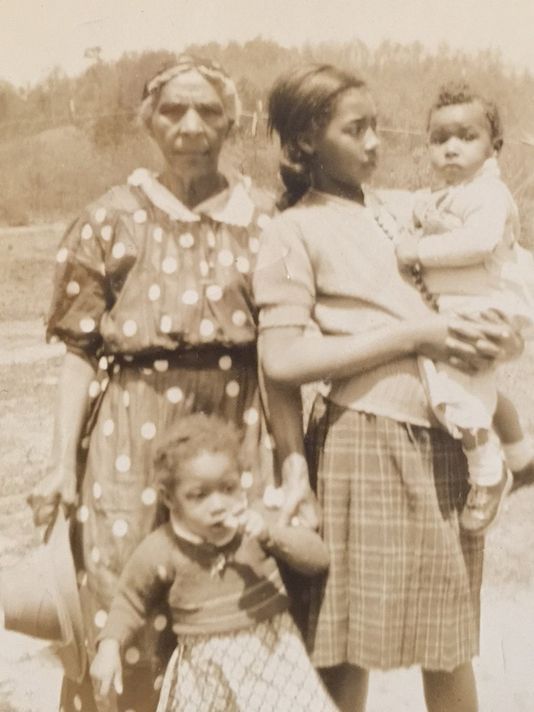
June 20th: African-American Women’s Midwifery and Doula Work in Buncombe County: Then and Now
A collaborative presentation exploring historic and contemporary Black women’s midwifery and doula work in Buncombe County. Researcher Kelly Dunbar will present a historical analysis of Black midwifery in Buncombe County from 1865 to 1930. Her presentation will focus on several prominent women from the area: Tempie Avery, Mary Stepp Hayden and Annie Daughtery. Afterwards, Nikita Smart, Director of Operations for Sistas Caring 4 Sistas Doula Services, will talk about her organization, the need for improving birth outcomes for families of color, and how the public can support this work. REGISTER HERE
NOTICE: In light of higher Covid rates in Buncombe County, our June 20th African-American Women’s Midwifery and Doula Work in Buncombe County: Then and Now event will be hosted online via zoom, not at the Black Mountain Public Library. Registrants will receive a zoom link to the event, which will still be taking place at the scheduled time of June 20th, 6pm-7:15pm. We look forward to seeing you there.
About Kelly Dunbar and Nikita Smart (click here)
Kelly Dunbar: A native of Western North Carolina, Kelly Dunbar was born in Valley Crucis, North Carolina where her parents both worked for the North Carolina Outward Bound School. At thirteen she moved to Asheville and graduated from Reynolds High School in 1999. She attended the University of NC at Asheville where she ran Division I track and x-country and played cello in the UNCA String Ensemble. In 2004 Kelly graduated with a BA in history and a teaching license. Following graduation she served for two years in the United States Peace Corps in Uganda. After returning from Uganda, Kelly took a job working for Buncombe County Middle College and then transferred to Owen High School in 2012. Currently she teaches 10th and 11th grade American History and AP U.S. History. In the spring of 2021 Kelly finished her MA in American History through Pace University, NY. The focus of her research was on black women as pioneers in community building and racial uplift in Buncombe County from 1865 to 1930.
Nikita Smart: Nikita is Director of Operations for Sistas Caring 4 Sistas. She is a certified birth doula, a certified breastfeeding peer counselor, a Lamaze-trained childbirth educator, and is currently earning her certification as a lactation consultant. She seeks to eliminate health disparities by educating and supporting women in her community. Nikita moved to the Asheville area in 2009 and has been assisting moms during the birthing process since 2016. She is a single parent and the busy mother of a teenager.

July 18th: Reception and Presentation- The Black Mountain Tyson Library: The First 100 Years
Join the Swannanoa Valley Museum and the Friends of the Black Mountain Public Library for a reception and presentation celebrating the 100 year anniversary of the library! Arrive at the Education Room of the library at 5:30pm to socialize and enjoy drinks and refreshments. Then, from 6:00pm – 7:15pm, researcher and Black Mountain resident Tom Stiles will provide an overview of the founding and growth of the Black Mountain Public Library from 1922 to today. His presentation will introduce the key players including the Friends of the Black Mountain Library and highlight their significant contributions. Afterwards, attendees are invited to stay for a Friends of the Black Mountain Library meeting to learn more about their work.
This event is FREE to all, but there is limited capacity.
All attendees must RSVP.
About Tom Stiles (click here)
Tom Stiles was born and raised in Baltimore, Maryland. After earning a BA in History and a commission in the Air Force at Colgate University in Hamilton, New York, he became a C130 navigator, flying both Tactical Airlift and Special Operations missions. Tom earned a Masters of Public Administration from Auburn University. His Air Force assignments included tours in Vietnam, Germany, Alaska and Turkey. After his retirement he worked as the head of Corporate Services for the Okaloosa Gas District in Niceville, Florida. He and Robin moved to Black Mountain in 2016. Their two sons gave them their five grandchildren.
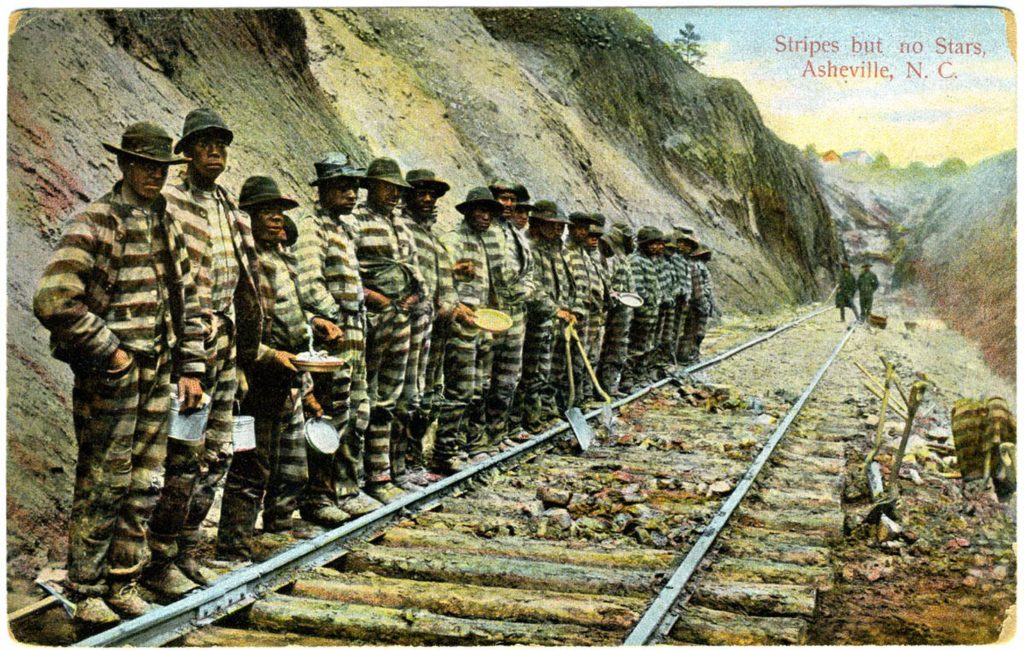
August 15th: The Railroad and Incarcerated Labor (RAIL) Memorial Project
The construction of the Mountain Division of the Western North Carolina Railroad in the late 19th century is widely considered one of the greatest human accomplishments in regards to both engineering and construction ever undertaken at the time it occurred. Many people are aware that the railroad provided the first dependable access to and from much of WNC for the rest of the state as well as much of the nation. However, most people are unaware that at least 95% of the labor which built the railroad across the Blue Ridge Escarpment was completed by inmates from the North Carolina State Penitentiary… and approximately 98% of those inmates were African American men, the majority of whom were unjustly imprisoned. In this presentation, members of the steering community of the Railroad and Incarcerated Labor (RAIL) Memorial Project, will discuss this history, the goals of the project, and discuss current and ongoing initiatives and fundraising needs. REGISTER HERE
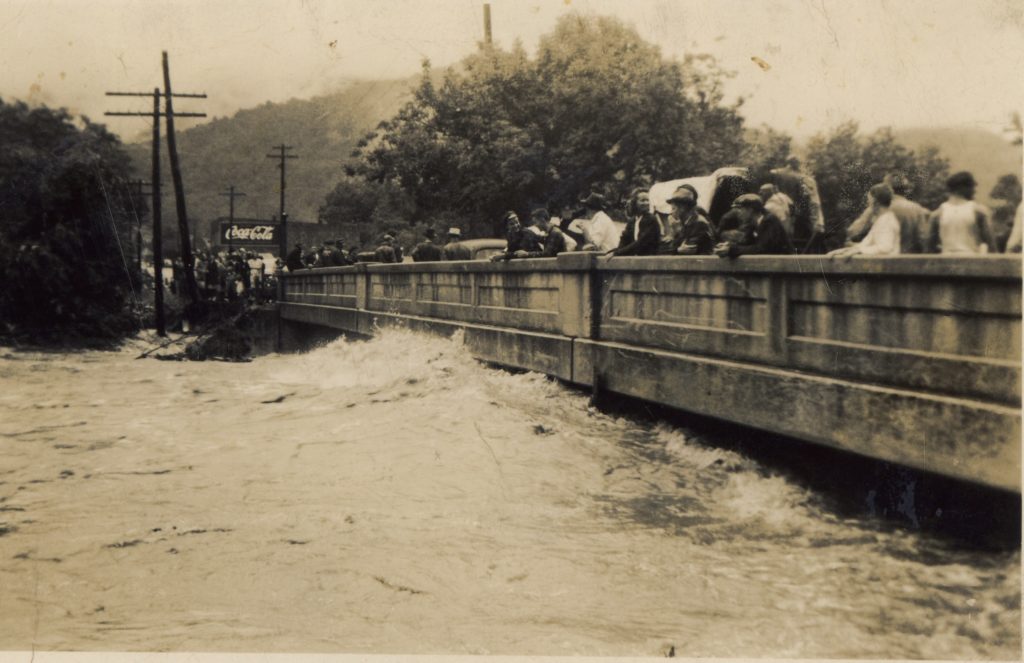
September 19th: Great Floods of the Swannanoa Valley and Western North Carolina
*This event will take place online on Zoom*
Anne Chesky Smith, director of the WNC Historical Association, and Swannanoa Valley Museum staff will discuss some of the largest flooding disasters in Western North Carolina’s history- including the floods of 1916, 1940 and 2004. Museum staff will also share photographs of these floods as they occurred in the Swannanoa Valley and talk about efforts to mitigate flood damage in the present day. REGISTER HERE
About Anne Chesky Smith (click here)
Anne Chesky Smith is the Executive Director at the Western North Carolina Historical Association in Asheville. She lives in Riceville with her family.
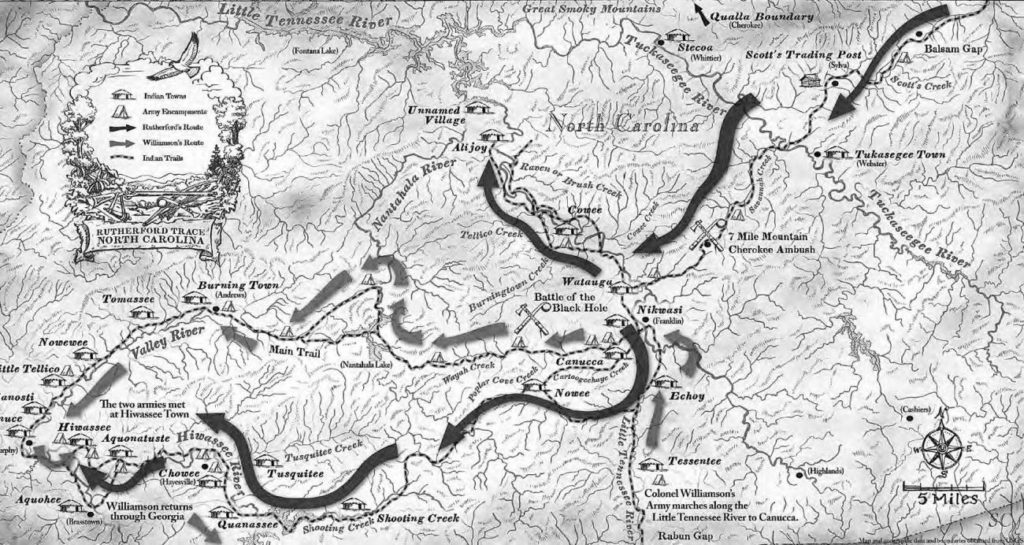
October 17th: The Bloody Summer of Independence: The Cherokee War of 1776 **This event has been moved to the Swannanoa Valley Museum & History Center **
While the ink was drying on the Declaration of Independence as it sat on a wooden table in the hot, stuffy Pennsylvania State House soon to be known as Independence Hall, war cries were echoing through the coves and hollows of the Blue Ridge Mountains. War had broken out on the frontier between the Cherokee Nation and Americans settling the frontier. The Cherokee turned to war in a desperate attempt to save their ancestral homeland and traditional way of life from the ever-increasing number of white settlers encroaching farther and farther into their territory. Their raids spread terror throughout the region and even swept into the Catawba River Valley. Those raids triggered brutal campaigns of reprisals by the newly independent states of North Carolina, South Carolina and Virginia leaving more than 50 Cherokee towns in flames and ashes. One of those reprisal campaigns led by General Griffith Rutherford left from what is today known as Old Fort and passed through the Swannanoa Gap and Valley on their way to the Cherokee towns further west. His route known as Rutherford’s Trace can still be followed today and is marked with silver and black historical markers. Come to this program and learn what led to this tragic war, stories and details of some of its more infamous incidendents and what the results of all this fighting produced. REGISTER HERE
About Jonathan Bennett (click here)
Jonathan Howard Bennett is an Interpretative National Park Ranger. He has worked for the Blue Ridge Parkway and the National Park Service presenting lectures on historical and scientific subjects for nearly 20 years. A native of Yancey County, he graduated from Wake Forest University where he double majored in history and archaeology. He also has done graduate work at East Carolina University in military history. Jonathan has work experience as both an archaeological lab and field technician with Wake Forest University Archaeological Laboratories. He has participated in several archaeological excavations and field surveys dealing with the American Revolution in the South as well as Cherokee history. He is the coauthor of Mount Mitchell which is part of Arcadia Publishing’s Images of America Series. He has also served as the Incident Commander of the Blue Ridge Parkway’s largest annual special event known as the Overmountain Victory Celebration since 2006.